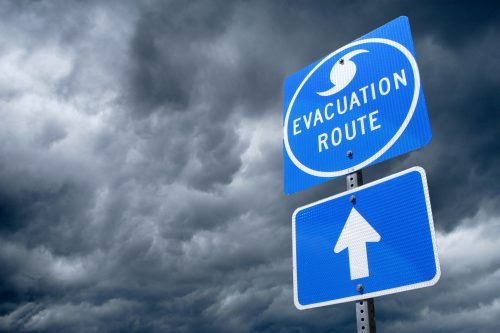
The financial impact of Hurricane Harvey, the first category 4 hurricane to hit our country since 2004, has already been estimated in the hundreds of billions. And as flood waters recede they will make way for the expensive (and lengthy) rebuilding process begins.
We’ve already seen an outpouring of generosity from Americans everywhere and from contributing donations of dollars to sending truckloads of supplies, people continue to come together to begin the recovery process. Unfortunately those moved by the spirit of compassion and community must be reminded to err on the side of caution as fake charities have already been identified among the throngs of genuine do-gooders.
Before You Donate, Investigate
As with most disasters of this magnitude, many Americans will choose to send money to organizations that will help coordinate relief efforts. On the other hand, those with less than honorable intentions will use these tragedies as an opportunity to scam donors out of their hard-earned and well-purposed funds.
In addition to a variety of other schemes, scammers regularly use Twitter and Facebook for the purpose of creating fake accounts that claim to raise money for hurricane victims. In fact, in the aftermath of the 2012 Hurricane Sandy disaster, fake charities collected hundreds of thousands of dollars from unsuspecting donors.
Charity scams are becoming more common and sophisticated. Therefore, if you’re considering giving to a charitable cause, the Federal Trade Commission recommends being overly cautious. Always research the organization you are supporting prior to making a donation. You should also take steps to ensure that your donation is, in fact, being sent to the correct organization.
When sending money for relief efforts, consider these tips:
Understand where your money will be used.
Donating to experienced organizations with records of assisting in relief projects is the smartest route to take. Charities that come out of nowhere with unfamiliar names should be treated with caution. Use the Better Business Bureau’s Wise Giving Alliance, Charity Watch, Charity Navigator, or GuideStar to check out and research charities.
Only use checks or credit cards.
Never use cash to make a donation. A check or credit card is a more secure way to ensure your money goes to the correct organization.
Verify crowdfunding pages.
Crowdfunding sites like GoFundMe have posted safety precautions to protect people who are choosing to use these sites to donate to relief efforts. All certified and approved GoFundMe accounts related with hurricane Harvey are on an official page.
Check the organization’s website before sending a text donation.
Use the charity’s website to verify that it has approved donations by text message. Remember, your donation might not be fulfilled until your phone bill is paid in full. With that in mind, the faster route is contributing directly to the charity.
Be cautious with internet links and attachments in e-mails.
Don’t open any attachments through your e-mail unless you’re absolutely certain you know who sent it. Any messages you receive or see online could be from a fake source, so be sure to verify the sources before clicking on anything.
Report suspicious activity.
If an organization doesn’t send you information about its relief programs and finances, be suspicious. All legitimate charities have this information and will be more than willing to provide it, especially when asked. If you believe you’re dealing with a scam, contact the Better Business Bureau to report the activity.
Don’t let criminals take advantage of your generosity. Taking the right precautions will ensure that your donations will go to the relief effort. Email Rea & Associates to find out more about how to make secured donations and how it can help you.
By Ben Antonelli, CPA (Dublin office)
